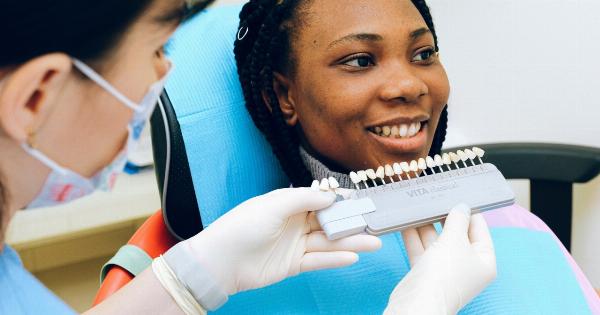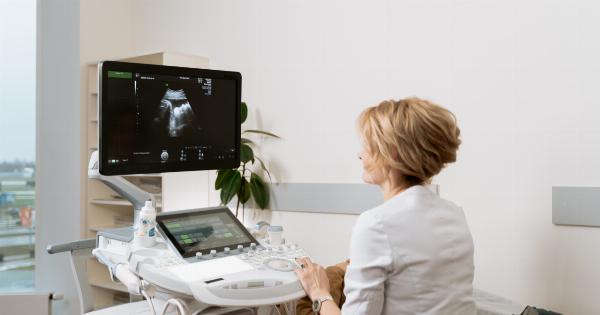A groundbreaking discovery in the field of artificial intelligence (AI) has paved the way for early detection of genetic abnormalities in fetuses during pregnancy.
This new technology is set to revolutionize the way prenatal diagnosis is carried out and provide parents with greater peace of mind about the health of their unborn child.
The Need for Early Genetic Abnormality Diagnosis
Prenatal diagnosis is carried out to detect any potential health issues in a developing fetus.
Early detection of genetic abnormalities can assist physicians in making informed decisions and offering prompt and proactive treatment to the affected fetus.
Conventionally, prenatal diagnosis is carried out through invasive procedures such as amniocentesis or chorionic villus sampling (CVS), where a small sample of amniotic fluid or tissue is taken from the mother’s uterus.
These procedures are generally performed in the second trimester and carry a small risk of miscarriage, making them unsuitable for routine screening.
Recent advancements in molecular genetics have led to the development of non-invasive prenatal testing (NIPT), which relies on the analysis of fetal DNA fragments present in the mother’s blood.
NIPT is a safer and less invasive method for prenatal diagnosis, but it is only available for common chromosomal abnormalities such as Down syndrome and Turner syndrome.
The Role of AI in Early Genetic Abnormality Diagnosis
Researchers at the University of Surrey and the Genomics England research consortium have developed an AI algorithm that can identify genetic abnormalities in fetuses using standard ultrasound images.
The algorithm relies on machine learning techniques to analyze thousands of ultrasound images and learn to identify abnormalities early on in the pregnancy.
By training the AI algorithm on a large dataset of ultrasound images and genetic data, the researchers were able to teach the algorithm to identify markers for genetic abnormalities such as Down syndrome, Edwards syndrome, and Patau syndrome.
The AI algorithm achieved an accuracy rate of 90%, making it a reliable and effective screening tool for prenatal diagnosis.
The Benefits of AI-Assisted Early Diagnosis
The use of AI in prenatal diagnosis provides several benefits over conventional methods.
First and foremost, early detection of genetic abnormalities can help parents and physicians make informed decisions about the pregnancy and the health of the fetus. This early diagnosis reduces the uncertainty and anxiety associated with waiting for the results of invasive procedures and enables parents to prepare for the arrival of a child with special needs.
AI-assisted diagnosis is also non-invasive, making it safer and less stressful for mothers and their developing fetuses.
The use of standard ultrasound images means that the AI algorithm can be integrated seamlessly into routine prenatal care, providing physicians with a powerful screening tool to detect genetic abnormalities.
The AI algorithm is also scalable and has the potential to be implemented on a large scale, providing access to early diagnosis to a greater number of expecting parents.
The use of AI in prenatal diagnosis has the potential to significantly reduce the incidence of genetic abnormalities and improve the overall health outcomes of newborns.
Implications for Future Research and Development
The use of AI in prenatal diagnosis is a significant advancement in the field of obstetrics and gynecology.
The algorithm developed by the researchers at the University of Surrey and the Genomics England research consortium is just the beginning of what could be achieved through machine learning and AI.
The next steps in research and development will involve refining the algorithm to increase its accuracy and expand its scope to include rarer genetic abnormalities.
The development of AI-assisted prenatal diagnosis will also require collaboration between experts in machine learning, obstetrics, and genetics to ensure that the technology is safe, effective, and accessible to all.
Conclusion
The use of AI in prenatal diagnosis represents a significant breakthrough in the field of obstetrics and gynecology.
The ability to detect genetic abnormalities early on in pregnancy using non-invasive techniques is a game-changer for expecting parents and physicians.
The AI algorithm developed by the researchers at the University of Surrey and the Genomics England research consortium is a powerful screening tool that has the potential to improve the health outcomes of newborns and reduce the incidence of genetic abnormalities.
The future of AI-assisted prenatal diagnosis looks promising, and we can expect to see further advancements in this field in the coming years.
The integration of machine learning and AI into routine prenatal care has the potential to revolutionize the way we approach prenatal diagnosis and improve the lives of millions of families around the world.


















